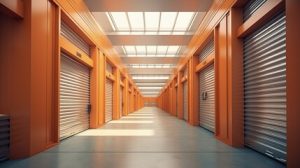Surveillance has become one of the most effective and reliable investigative methods for gathering truthful, real-time information. In situations where uncertainty, suspicion, or risk is present, an expert Private Investigator Nashville plays a vital role in observing, documenting, and analyzing behavior without drawing attention. Their ability to provide discreet and accurate surveillance empowers individuals, businesses, and legal professionals to make informed decisions based on credible evidence. As modern technology evolves and investigative challenges become more complex, skilled private investigators have refined their approach to ensure that surveillance remains one of the most dependable tools available in the field of private investigation.

At its core, surveillance involves the careful monitoring of individuals, locations, or activities to uncover details that would otherwise remain hidden. Unlike casual observation, professional surveillance requires specialized training, advanced equipment, structured planning, and an understanding of legal boundaries. Expert private investigators excel in these areas, combining technical skill with strategic insight. They maintain a low profile, blending seamlessly into various environments while capturing accurate, time-stamped documentation. This level of precision ensures that their findings are not only informative but also credible enough to be used in personal decisions, corporate processes, and legal proceedings.
One of the most common applications of surveillance is in personal matters, particularly when suspicions arise within relationships. Concerns about infidelity or questionable behavior can lead to emotional distress and uncertainty. Attempting to resolve these concerns independently can result in misunderstandings or confrontation. Expert private investigators offer a solution that is both discreet and objective. They observe behavior, track activities, and document interactions without interfering or drawing attention. Clients benefit from factual information that allows them to address sensitive matters with clarity rather than speculation. For many individuals, this professional approach helps restore peace of mind and provides a solid foundation for making informed personal choices.
Surveillance also plays a critical role in child custody and family-related cases. When questions arise regarding a parent’s conduct, living conditions, or interactions with others, expert investigators are called upon to gather unbiased documentation. Through careful observation and detailed reporting, they help build a clear picture of the child’s environment and the behavior of those involved. This information can support legal strategies, clarify concerns, and protect the well-being of the child. By prioritizing accuracy and discretion, investigators ensure that their involvement does not disrupt the situation while still delivering meaningful insights.
In the business world, surveillance is equally essential. Companies rely on expert private investigators to monitor employee behavior, ensure workplace compliance, and detect potential misconduct. Issues such as internal theft, time fraud, policy violations, and unauthorized sharing of sensitive information can harm productivity and compromise a company’s reputation. Through undercover observation, video documentation, and detailed analysis, investigators provide employers with a clearer understanding of what is happening within their operations. Their findings empower businesses to take corrective action, strengthen internal policies, and protect valuable assets.
Corporate surveillance also plays a significant role in verifying workers’ compensation claims and insurance-related concerns. Fraudulent claims can result in substantial financial losses for companies and insurers. Expert private investigators conduct discreet surveillance to determine whether claimants are engaging in activities inconsistent with their reported injuries or limitations. By capturing accurate, real-time evidence, investigators help employers and insurers differentiate between legitimate and fraudulent cases. This reduces unnecessary payouts and ensures that resources go to those who truly need them.
Insurance fraud is a broader concern that impacts both companies and individuals. Beyond workers’ compensation, false claims can occur in areas such as property damage, staged accidents, and personal injury. Expert investigators use surveillance to confirm or dispute these claims by observing activities, reviewing documentation, and tracking behavioral patterns. Their findings help insurers make fair and informed decisions while minimizing fraudulent activity. Through clear evidence and professional reporting, investigators contribute directly to reducing financial losses and maintaining the integrity of insurance processes.
Another important area where discreet surveillance is utilized is in cases involving harassment, stalking, or threats. When individuals feel unsafe or believe they are being monitored by another party, private investigators can help confirm the nature of the behavior. By documenting suspicious activity and verifying patterns, investigators help clients assess the seriousness of the situation. This evidence can be valuable in legal proceedings or in developing safety strategies that protect the client from further harm. The ability to gather this information without escalating the situation highlights the importance of experienced investigators in maintaining both discretion and safety.
Expert private investigators also assist businesses with competitive intelligence and asset protection. Surveillance helps companies identify unauthorized access, suspicious activity, or attempts to compromise sensitive information. This is particularly important for organizations that manage valuable assets, intellectual property, or confidential data. By monitoring specific locations, tracking unusual behavior, and documenting potential threats, investigators help companies prevent security breaches and safeguard their operations. In these cases, surveillance serves as a critical component of a comprehensive risk management strategy.
When conducting surveillance, expert private investigators use various tools and techniques to ensure accuracy and discretion. Advanced equipment, such as high-resolution cameras, discreet audio devices, tracking tools, and specialized software, enhances the efficiency and reliability of surveillance efforts. However, the true expertise of an investigator lies not in the equipment alone but in the strategic planning and execution of the surveillance operation. Experienced investigators understand how to position themselves, interpret behavior, and remain unnoticed in a variety of environments. They adapt to changing conditions, anticipate potential obstacles, and maintain professionalism throughout the investigation.
Mobile surveillance is one of the most challenging yet valuable investigative techniques. It requires the investigator to follow a subject without being detected, often across multiple locations or through unpredictable movements. Expert investigators use strategic driving patterns, communication tools, and situational awareness to maintain consistent observation. Stationary surveillance, on the other hand, involves monitoring a fixed location from a concealed position. This approach is commonly used when observing workplaces, residences, or specific areas where consistent activity is expected. Both methods require patience, adaptability, and a deep understanding of human behavior.
Digital surveillance is another modern technique that expert private investigators use to gather information. This may involve monitoring online activity, analyzing social media patterns, reviewing digital communication, or tracking electronic records. With so much personal and business activity occurring online, digital surveillance has become a crucial element of modern investigations. Investigators use legal and ethical methods to uncover connections, verify identities, and analyze behavioral trends. When combined with physical surveillance, digital insights help create a comprehensive view of the subject’s activities.
Discretion is one of the most important qualities in surveillance work. Expert private investigators understand the importance of maintaining confidentiality and avoiding unnecessary exposure. Every action they take is planned to minimize disruption and protect client privacy. This includes using unmarked vehicles, blending into surroundings, avoiding direct interactions, and following strict legal guidelines. Their ability to gather detailed information quietly and efficiently is what makes their services so valuable.
Accurate documentation is another hallmark of expert surveillance. Investigators provide clients with detailed reports that include photographs, videos, observations, timestamps, and summaries of activity. This level of documentation ensures that clients receive clear and actionable information. In legal cases, well-prepared surveillance reports can serve as credible evidence, helping attorneys build stronger arguments and present factual information. The precision and professionalism of the documentation reflect the investigator’s commitment to delivering high-quality results.
When selecting a private investigator for surveillance, clients should look for qualities such as experience, professionalism, and strong ethical standards. The investigator should have a proven track record, a clear understanding of legal regulations, and the ability to communicate effectively throughout the investigation. Tools and technology are important, but trust, discretion, and investigative skill are the true indicators of a reliable professional. Clients should feel confident that the investigator will handle the case with care, confidentiality, and attention to detail.
Expert private investigators who specialize in discreet and accurate surveillance provide a valuable service that helps uncover the truth in situations where clarity is needed most. Their ability to operate strategically, gather factual information, and document findings makes them indispensable in both personal and business matters. Whether addressing relationship concerns, workplace misconduct, insurance fraud, safety threats, or corporate risks, surveillance remains one of the most powerful investigative tools available.
In a world where uncertainty can have serious emotional, financial, and legal consequences, professional surveillance brings clarity and peace of mind. By combining experience, advanced techniques, and unwavering discretion, expert private investigators deliver the insights clients need to move forward confidently. Their work reinforces the importance of truth, transparency, and preparedness in navigating life’s most challenging circumstances.







